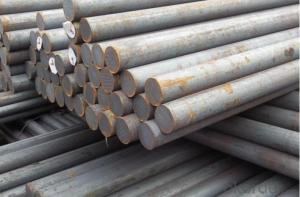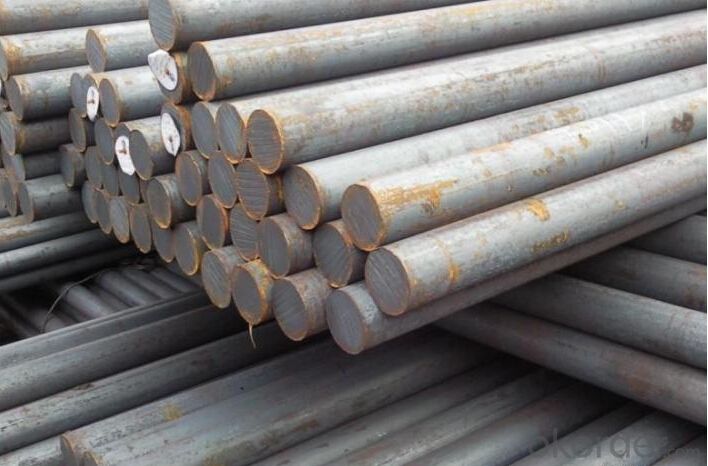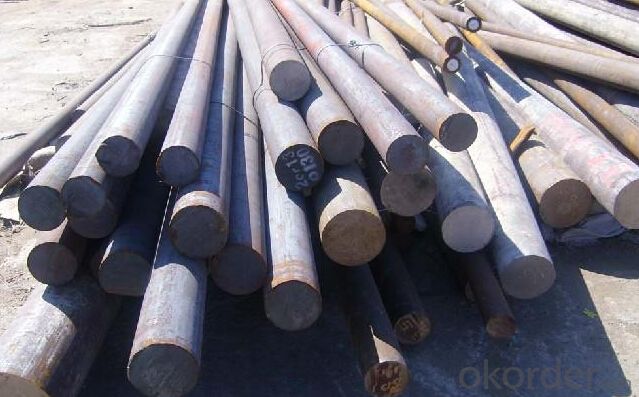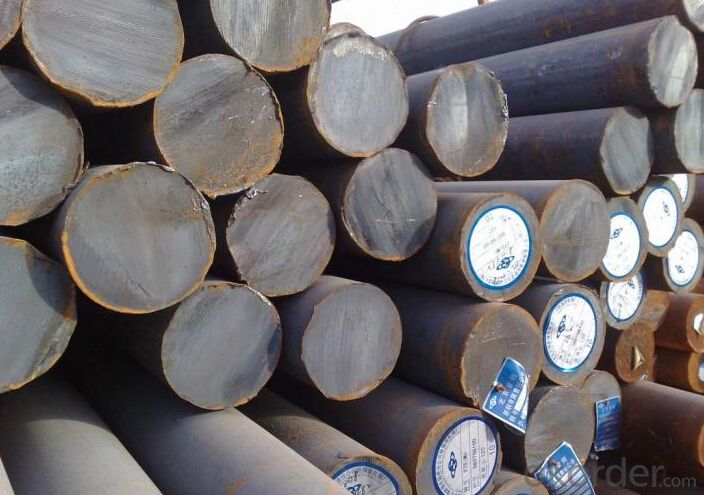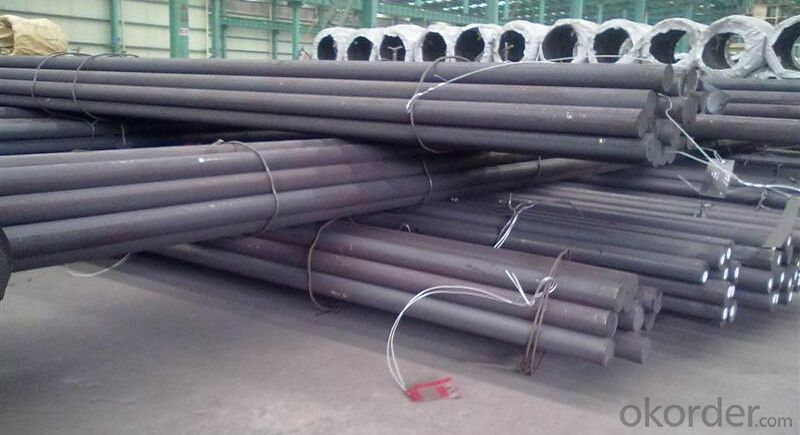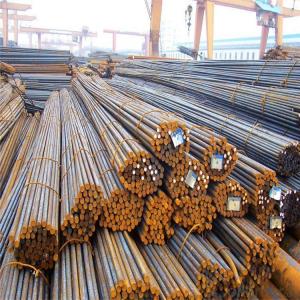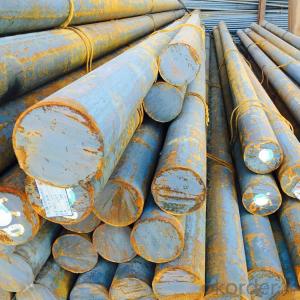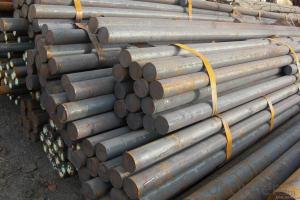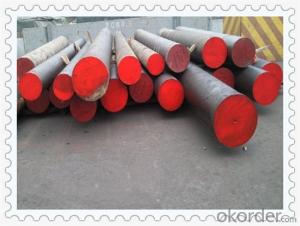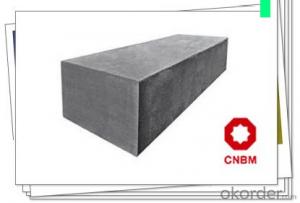Grade C35 S35C 1035 forging high quality carbon structural steel
- Loading Port:
- Shanghai
- Payment Terms:
- TT OR LC
- Min Order Qty:
- 3 m.t.
- Supply Capability:
- 100000 m.t./month
OKorder Service Pledge
OKorder Financial Service
You Might Also Like
Specification
Grade C35 S35C 1035 forging high quality carbon structural steel
Details Information of Grade C35 S35C 1035 forging high quality carbon structural steel
| Item | carbon steel bar C35,carbon steel rod,carbon steel shaft | |
| Model No. | Q235B,Q345B,A36,SS330,SS400,SAE1045,Q195,Q215,10#,15#, 25#,30#,1010,1015,1020,1025,1030 | |
| Standard | ASTM,AISI,JIS,DIN,GB,EN | |
| Size | round | Diameter:4mm-800mm |
| Length:1-12m,or as required | ||
| flat | Width:3mm-3000mm | |
| Thickness:0.3mm-200mm | ||
| Length:1m-12m,or as required | ||
| square | Diameter:2mm*2mm-800*800mm | |
| Length:1m-12m,or as required | ||
| angle | Width:10mm*10mm-400mm*400mm | |
| Length:1m-12m,or as required | ||
| hexagonal | Diameter:4mm-800mm | |
| Length:1m-12m, | ||
| Delivery time | Prompt or according to the order quantity. | |
| Trade terms | Payment terms:T/T,L/C,western union | |
| Price terms:FOB,CFR,CIF,EXW | ||
| Package | Standard export seaworthy package, or as required. | |
| Application | Steel bar applies to petroleum,chemical industry,electric power, boiler,high temperature resistant,low temperature resistant, corrosion resistant.Carbon steel bar also can be made accroding to the customer's requirement. | |
| Contact | If you have any question,please feel free to contact me. | |
Chemical Composition ofGrade C35 S35C 1035 forging high quality carbon structural steel
| C | Si | Mn | P | S | Cr | Ni | Cu |
| 0.17-0.24 | 0.17-0.37 | 0.35-0.65 | ≤0.035 | ≤0.035 | ≤0.25 | ≤0.25 | ≤0.25 |
| Tensile strength (σb/MPa) | Yield strength (σb/MPa) | Elongation (δ5/%) |
| ≥410(42) | ≥245(25) | ≥25 |
Company Introduction of Grade C35 S35C 1035 forging high quality carbon structural steel
CNBM International Corporation is the most import and export platform of CNBM group(China National Building Material Group Corporation) ,which is a state-owned enterprise, ranked in 270th of Fortune Global 500 in 2015.
With its advantages, CNBM International are mainly concentrate on Cement, Glass, Iron and Steel, Ceramics industries and devotes herself for supplying high quality series of refractories as well as technical consultancies and logistics solution.
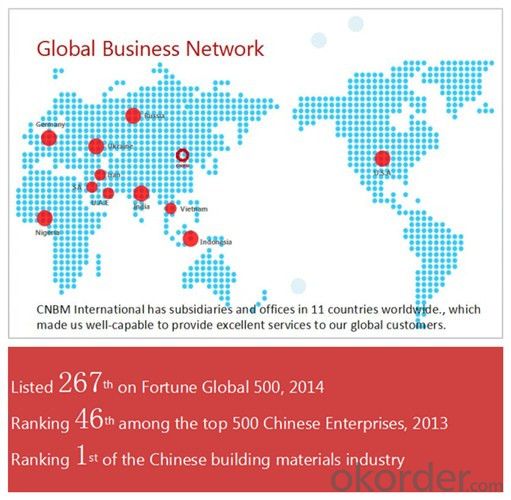
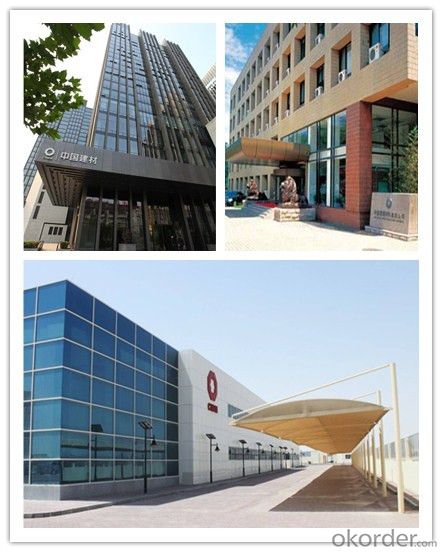
Certificates of Grade C35 S35C 1035 forging high quality carbon structural steel
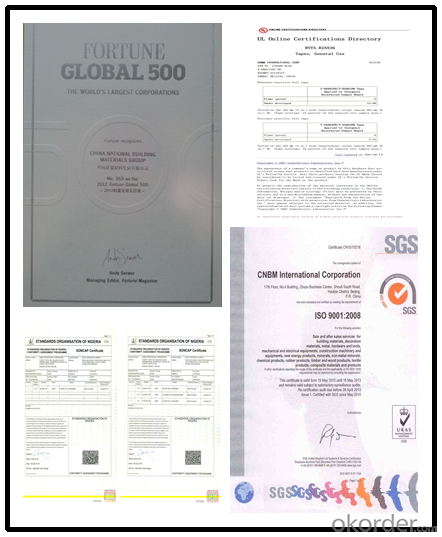
Packaging & Delivery of Grade C35 S35C 1035 forging high quality carbon structural steel
Packaging Detail | Sea worthy packing /as per customer's packing instruction |
Delivery Detail | 15 ~ 40 days after receiving the deposit |
Products show of Grade C35 S35C 1035 forging high quality carbon structural steel
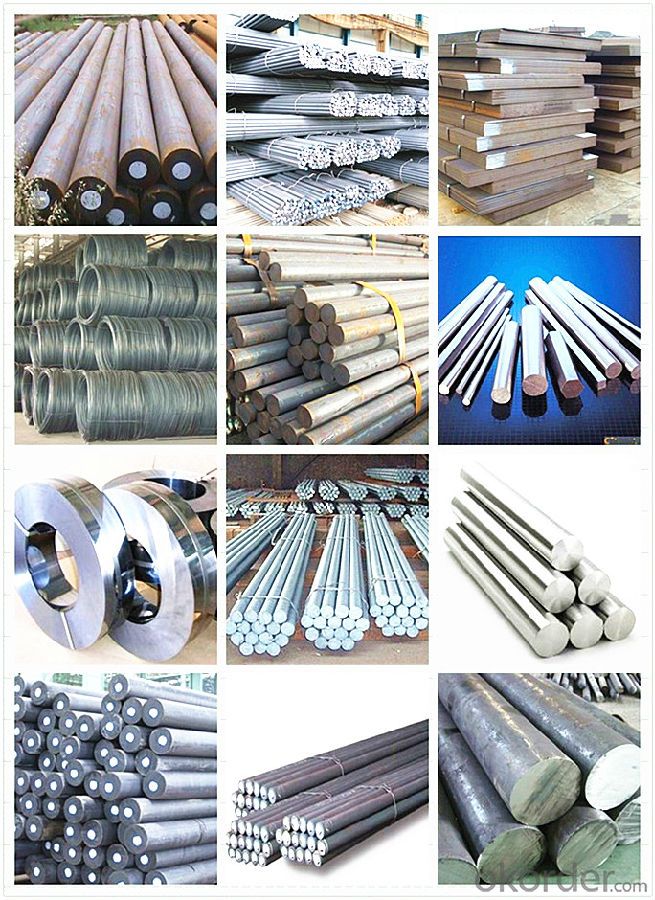
FAQ
Are you a trading company or manufacturer? | Manufacturer |
What’s the MOQ? | 3 metric ton |
What’s your delivery time? | 15-35 days after downpayment received |
Do you Accept OEM service? | Yes |
what’s your delivery terms? | FOB/CFR/CIF |
What's the Payment Terms? | 30% as deposit,70% before shipment by T/T |
Western Union acceptable for small amount. | |
L/C acceptable for large amount. | |
Scrow ,Paybal,Alipay are also ok | |
Why choose us? | Chose happens because of quality, then price, We can give you both. Additionally, we can also offer professional products inquiry, products knowledge train (for agents), smooth goods delivery, excellent customer solution proposals. |
What's your available port of Shipment? | Main Port, China |
What’s your featured services? | Our service formula: good quality+ good price+ good service=customer's trust
|
Where are your Market? | Covering more than 160 countries in the world |
- Q: What are the applications of special steel in the aerospace sector?
- Special steel has numerous applications in the aerospace sector due to its exceptional properties and capabilities. Firstly, special steel is used in the manufacturing of aircraft engines. The high strength and temperature resistance of special steel make it ideal for components such as turbine blades and discs, which are subjected to extreme heat and stress during operation. Special steel also offers excellent corrosion resistance, ensuring the longevity and reliability of critical engine parts. Another application of special steel in the aerospace sector is in the construction of aircraft structures. Special steel alloys are utilized to fabricate landing gear, wing components, and other structural elements. The high strength-to-weight ratio of special steel enables the production of lightweight yet robust structures, contributing to fuel efficiency and overall performance. Special steel is also employed in the production of aerospace fasteners. These include bolts, nuts, and screws that hold various aircraft components together. The exceptional mechanical properties and resistance to fatigue and vibration of special steel make it an ideal material for fasteners, ensuring the integrity and safety of aircraft assemblies. Furthermore, special steel finds application in aerospace tooling and equipment. Tools used in the manufacturing process, such as cutting tools and molds, are often made from special steel. Its high hardness and wear resistance enable efficient and precise machining of aerospace components. Additionally, special steel is utilized in the production of specialized equipment, such as test rigs, calibration devices, and ground support equipment, which are crucial for aerospace operations and maintenance. In summary, special steel plays a vital role in the aerospace sector. Its use in aircraft engines, structures, fasteners, and tooling contributes to the overall safety, performance, and reliability of aerospace systems. The unique properties of special steel make it an indispensable material for the demanding and critical applications within the aerospace industry.
- Q: What is the impact of titanium in special steel alloys?
- Titanium has a significant impact on special steel alloys as it improves the strength, corrosion resistance, and heat resistance of the resulting material. It also helps in reducing the weight of the alloy while maintaining structural integrity, making it ideal for applications in aerospace, automotive, and medical industries.
- Q: How does special steel contribute to the agricultural sector?
- Special steel contributes to the agricultural sector in several ways. Firstly, special steel is known for its strength and durability, making it an ideal material for manufacturing various agricultural machinery and equipment. This includes tractors, plows, harvesters, and irrigation systems, among others. These machines require robust and reliable components that can withstand the demanding conditions of agricultural work, and special steel provides the necessary strength and resistance to wear and tear. Additionally, special steel can be used to produce high-quality cutting tools that are essential in farming operations. Implements such as sickles, scythes, and pruning shears need to have sharp and durable blades to efficiently cut through vegetation. Special steel's hardness and strength make it a suitable material for manufacturing these tools, ensuring they retain their sharpness even after prolonged use. Furthermore, special steel can contribute to the agricultural sector by enabling the construction of sturdy and durable infrastructure. Agricultural buildings, storage facilities, and fencing often require strong and corrosion-resistant materials to withstand the elements and protect crops, livestock, and equipment. Special steel, with its resistance to rust and structural integrity, can be used in the construction of barns, silos, sheds, and fencing, providing long-lasting and reliable structures. In conclusion, special steel plays a crucial role in the agricultural sector by providing the necessary strength, durability, and corrosion resistance required for the manufacturing of machinery, cutting tools, and infrastructure. Its properties contribute to improved efficiency, productivity, and reliability in agricultural operations, ultimately benefiting farmers and the overall agricultural industry.
- Q: How does special steel contribute to the manufacturing of bearings?
- Special steel plays a crucial role in the manufacturing of bearings due to its unique properties and characteristics. Bearings are mechanical components that facilitate smooth rotation or movement between two surfaces. Special steel, also known as bearing steel, is specifically designed to meet the demanding requirements of bearing applications. Firstly, special steel offers exceptional hardness, which is crucial for bearings to withstand heavy loads and high-speed rotations. The hardness of the steel allows the bearing to resist wear and deformation, ensuring a longer lifespan and reliable performance. Secondly, special steel possesses excellent corrosion resistance. Bearings often operate in harsh environments where they are exposed to moisture, chemicals, and other corrosive substances. The special steel used in bearing manufacturing effectively prevents rust and deterioration, ensuring the bearings can withstand these challenging conditions. Furthermore, special steel has superior heat resistance and thermal stability. Bearings can generate significant heat during operation due to friction and pressure. The special steel used in their production can withstand high temperatures without losing its structural integrity, preventing premature failure and ensuring consistent performance. Additionally, special steel offers exceptional strength and toughness. These properties are vital for bearings to withstand the intense forces and impacts they experience during operation. The high strength and toughness of the steel prevent fractures, breakages, and other forms of damage, contributing to the overall durability and reliability of the bearings. Lastly, special steel has excellent dimensional stability and machinability. This allows for precise manufacturing and shaping of the bearing components, ensuring accurate dimensions and smooth surfaces. The dimensional stability of the steel ensures that the bearings can maintain their proper fit and alignment within the machinery, minimizing any potential issues or malfunctions. In conclusion, special steel is essential in the manufacturing of bearings due to its hardness, corrosion resistance, heat resistance, strength, toughness, dimensional stability, and machinability. These properties enable bearings to withstand heavy loads, high speeds, harsh environments, and intense forces, ensuring reliable and efficient operation in a wide range of applications.
- Q: How does special steel contribute to the aerospace fuel efficiency?
- Special steel contributes to aerospace fuel efficiency in several ways. Firstly, special steel alloys are used in the manufacturing of aircraft engines, which are designed to be lightweight and durable. The use of these alloys helps reduce the overall weight of the engine, resulting in less fuel consumption during flight. Additionally, special steel is also used in the construction of various aircraft components, such as wings and landing gear. By utilizing stronger and lighter steel materials, the overall weight of the aircraft is reduced, leading to improved fuel efficiency. Moreover, special steel's high temperature resistance properties enable it to withstand the extreme heat generated by engines, allowing for more efficient combustion and reduced energy loss. Overall, the use of special steel in aerospace applications significantly contributes to fuel efficiency by reducing weight, improving durability, and optimizing engine performance.
- Q: What are the different methods of coating special steel?
- Enhancing the performance and safeguarding special steel from corrosion or damage can be achieved through various coating methods. Some commonly used techniques include: 1. Galvanization: A layer of zinc is applied to the steel, either through hot-dip galvanization or electroplating. This zinc layer offers exceptional corrosion resistance and acts as a sacrificial anode, preventing rusting. 2. Powder coating: An electrostatically applied dry powder is cured under heat, creating a protective layer that not only provides resistance to chipping, scratching, and corrosion but also adds an appealing finish. 3. Electroplating: The steel is immersed in a solution containing metal ions like chromium or nickel, and an electric current is passed through it. This process deposits the metal ions onto the steel surface, forming a thin protective layer that enhances corrosion resistance and gives a decorative appearance. 4. Cladding: A layer of corrosion-resistant material, such as stainless steel or titanium, is bonded to the surface of the special steel. Cladding offers improved resistance to corrosion, wear, and heat while maintaining the base steel's strength and mechanical properties. 5. Thermal spraying: Coating material like zinc or aluminum is heated to a molten or semi-molten state and then sprayed onto the steel surface using compressed air or a similar method. The sprayed material forms a protective layer that delivers excellent corrosion resistance and can also provide functional properties like thermal insulation or electrical conductivity. 6. Chemical conversion coating: The steel surface is treated with a chemical solution that reacts with the surface to create a thin layer of protective compound like phosphate or chromate. This conversion coating enhances corrosion resistance and promotes the adhesion of subsequent coatings. These are just a few examples of the numerous coating methods available for special steel. The selection of the most suitable method depends on factors like desired properties, intended application, and budget constraints. It is crucial to choose the appropriate coating method to ensure the longevity and performance of the special steel.
- Q: How does special steel contribute to the overall strength and durability of structures?
- Special steel contributes to the overall strength and durability of structures by providing enhanced mechanical properties such as higher tensile strength, improved corrosion resistance, and increased toughness. Its unique composition and manufacturing processes allow for greater load-bearing capacity, better resistance to wear and tear, and increased longevity. This makes it a crucial material in construction, engineering, and other industries where strength and durability are paramount.
- Q: How does tool steel maintain its hardness at high temperatures?
- Tool steel maintains its hardness at high temperatures due to its high carbon content and alloying elements. The high carbon content allows for the formation of carbides, which are extremely hard and stable even at elevated temperatures. Additionally, the alloying elements in tool steel, such as chromium, tungsten, and molybdenum, form secondary carbides that further enhance the steel's hardness and heat resistance. These carbides act as strengthening agents, preventing the steel from losing its hardness and maintaining its performance even under high-temperature conditions.
- Q: How does special steel contribute to improving product sustainability?
- Special steel contributes to improving product sustainability in various ways. Firstly, special steel is known for its durability and strength, which enables products made from it to have a longer lifespan. This reduces the need for frequent replacements, minimizing waste and conserving resources. Additionally, special steel is highly recyclable, allowing it to be reused and transformed into new products, thus reducing the demand for virgin materials. Furthermore, special steel's resistance to corrosion and wear makes it suitable for harsh environments, reducing maintenance requirements and extending product lifecycles. Overall, the use of special steel enhances product sustainability by promoting longevity, resource conservation, and circular economy principles.
- Q: What are the properties of mold steel?
- Mold steel is known for its exceptional hardness, wear resistance, and toughness. It possesses high heat resistance and can withstand extreme temperatures, making it suitable for use in industrial applications where molds are subjected to repetitive heating and cooling cycles. Mold steel also exhibits good dimensional stability, allowing for the precise replication of complex shapes and intricate details. Additionally, it has excellent machinability and polishability, ensuring smooth surface finishes on the molded products. Overall, the properties of mold steel make it an ideal material choice for manufacturing high-quality molds used in various industries such as automotive, aerospace, and consumer goods.
Send your message to us
Grade C35 S35C 1035 forging high quality carbon structural steel
- Loading Port:
- Shanghai
- Payment Terms:
- TT OR LC
- Min Order Qty:
- 3 m.t.
- Supply Capability:
- 100000 m.t./month
OKorder Service Pledge
OKorder Financial Service
Similar products
Hot products
Hot Searches
Related keywords
